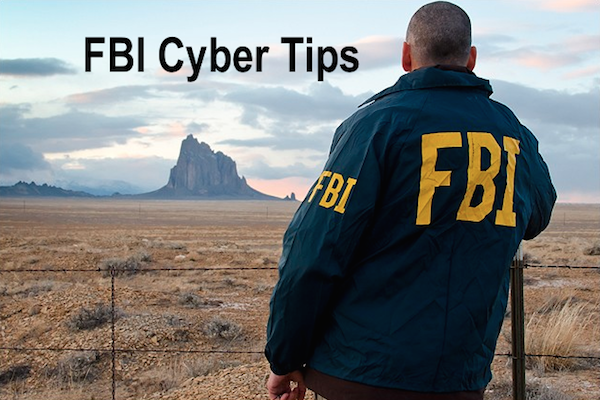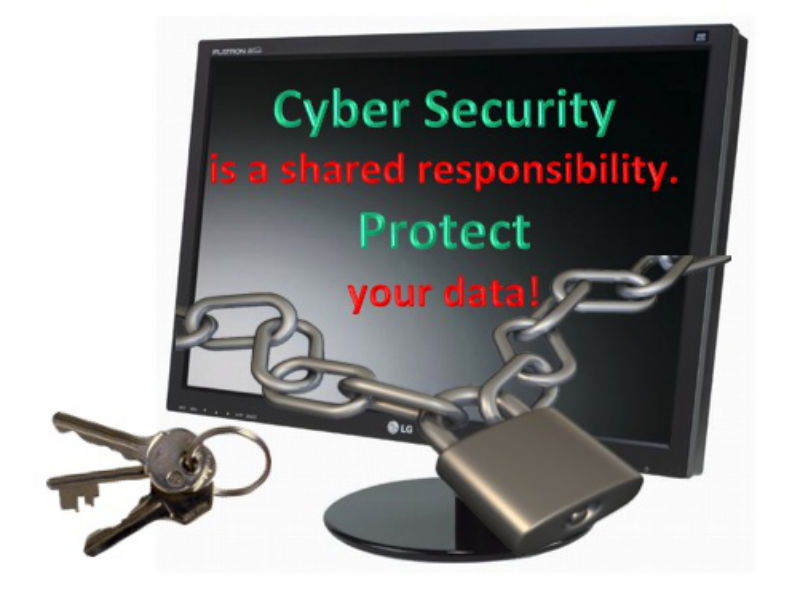Guidelines to Protect Children from Online Sexual Predators
While there are obvious virtues to using cell phones and the internet, technology is simultaneously making children vulnerable and exposing them to exploitation and danger. Cyber bullying, gaming, webcams, social networking, sexting, inappropriate content, blogging, identity theft, revealing too much private information, email, instant messaging, chat rooms and online sexual predators can harm children of all ages.
Male or female sexual predators are not always stereotypical creepy people and may be surprisingly pleasant in appearance and charming in nature. Some are sexually explicit from the start and others slowly seduce with attention, kindness and gifts. Some are content to simply exchange sexually explicit materials and others seek in-person meetings or sexual encounters.Children can be victimized face-to-face or by words and pictures or photos sent in the mail or electronically. Without recognizing the danger, some adolescent children may be unknowingly lured by and attracted to dangerous online offenders close to their age even if they are not a child molester. It is critical to have open communication with children of all ages to avoid these serious issues.
Minimize Online Exploitation of your Children:
- Communicate regularly with your children and talk to them about sexual victimization and online danger.
- Teach your child how to access resources appropriately and how to use the internet responsibly.
- Make the following information clear to your children:
- Do not meet people in person that you met online.
- Do not provide your photo to strangers or upload photos of yourself to online services. On Facebook, limit the viewing of your photos to friends.
- Do not give out personal information such as your name, home address, school name, or home or cell phone numbers.
- Do not download pictures from strangers or unknown senders.
- Do not respond to inappropriate messages or postings that are evocative, suggestive, obscene, belligerent, or harassing.
- Do not assume everything on the internet is true, honest or legitimate. People are often dishonest online and online communication may be true or false.
- Know what your children are doing online and where they are going online by spending time with them while they are online.
- Always have access to your children’s computers – keep track of their logon passwords, if necessary.
- Do not allow computers in children’s bedrooms. It is much more difficult for a sex offender to communicate with a child when the communication is visible to other members of the household.
- Use blocking software and parental controls provided by service providers. Chat rooms can be a great place for children to make new friends and to discuss important and interesting topics, but online sex offenders are known to prowl chat rooms and their use should be carefully monitored. Parents should use parental controls and blocking software but should not rely on them. There is no substitution for communicating with your child and knowing what they are doing firsthand.
- Maintain access to children’s online accounts and occasionally check children’s e-mail. Be aware that your child can also be contacted through regular mail. Do not let your child perceive you as a snoop. It is important for your child to know what you are doing and why.
- Find out what computer safeguards are in place at other locations where your child has access to a computer. (School, library, friends’ homes.) There are multiple unsupervised places where a child could encounter an online predator.
- Block your home telephone number from appearing on other’s Caller ID. Use Caller ID on your home telephone so callers need to unblock their telephone number to connect
Signs That A Child May Be At Risk:
- Child spends excessive amount of time online, especially at night. Offenders are online at all times however, most work during the day and troll for pornography and child victims at night.
- Child quickly changes the screen or turns the computer monitor off when a parent enters the room. Children looking at pornography or having sexually explicit conversations do not want others to see.
- Child gets angry when he or she cannot get to the computer.
- Pornography is found on a child’s computer. Sex offenders often supply children with pornography to initiate sexual discussions and for seduction.
- Child receives phone calls from adults parents do not know or makes calls, sometimes long distance, to unrecognized numbers. Sex offenders are excited and thrilled by online communication but also engage in phone sex and in-person sex. Sex offenders will provide their numbers to children who are unwilling to give them theirs. They can easily obtain phone numbers with Caller ID and some provide toll-free numbers or tell children to call them collect to prevent their parents from knowing about the relationship.
- Child receives mail, gifts, or packages from someone the parents don’t know. Offenders often send letters, photographs, airline or bus tickets, and gifts such as cell phones and webcams as part of their seduction.
- Child becomes withdrawn from the family and friends. Sexual victimization can change a child’s personality and sex offenders may strive to intentionally turn a child against their family.
- Child uses someone else’s online account. Children can use computers out of the home – those belonging to a friend or a library, for example. Cyber criminals may provide children with a computer account in order to facilitate communication.
What To Do If You Suspect Your Child Is In Contact With A Sexual Predator:
- Do not hesitate to ask your child questions and to talk about your suspicions.
- Review contents of your child’s computer(s) and other devices regularly. If you don’t know how, get instructions from someone who does know how to do this. Sexually explicit communication and pornography signal an issue.
- Monitor your child’s access to all types of live electronic communications such as chat rooms and instant messages and monitor your child’s e-mail. Online sex offenders often meet potential victims via chat rooms and they usually continue to communicate via e-mail.
- Let your child know what is considered inappropriate online.
- Discuss the dangers of online sex offenders and predators.
- Understand that even if your child participated willingly in any form of sexual exploitation, your child is the victim. The offender bears the full responsibility for his or her actions.
Steps To Take If Your Child Has Been In Contact With A Sexual Predator:
- If you feel your child is in danger, make a report to www.cybertipline.com and contact your local law-enforcement agency immediately. You can also contact your local FBI branch , or the National Center for Missing and Exploited Children at 1-800-843-5678 if:
- Your child (or anyone else in your household) received child pornography
- Your minor child is sexually solicited by someone who knows that your child is a minor (under age 18)
- Your child receives sexually explicit images from someone that knows your child is a minor
- If you find evidence of pornography, sexually explicit images, e-mails etc., keep the computer or device turned off to preserve evidence for law enforcement use. Unless directed to do so by law enforcement, do not copy inappropriate images or text.
For more information, contact:
- Your local FBI office: http://www.fbi.gov/contact-us/field
- National Center for Missing and Exploited Children: http://www.missingkids.com/missingkids/servlet/PublicHomeServlet?LanguageCountry=en_US
Sources:














Agree! All good advice and much needed in this day and age of putting our lives out in the social media space.
There is a new parental control monitoring application out now for Facebook. It’s very cool and very worth checking out. The app is RedFlag (redflag.com). It’s non-invasive on the child’s side, and on the parent side, alerts them of anomalous friend activity. This allows parents to be proactive in protecting their kids from online predators. The cool thing is that it was developed by a parent after his own son became the target of a predator on Facebook(an adult male posing as a 14-year-old girl).
Again, thank you for all the great security information. It’s always helpful.
Thanks for that information, Kristy. There are so many online dangers between cyber theft and predators that it’s great to have resources available like RedFlag. If I had young children, it’s certainly something I’d be testing out!
A well written and excellent blog that should be published in local newspapers, school literature, magazines etc. so that everyone is made totally aware of all the dangers we face with modern technology.
This is great advice!! and very important information for all parents and their children .
Gina,
Thanks for sharing that story. It’s frightening that the parents didn’t understand the potential danger of the situation and that they had the audacity to be angry at the friend who was the only one displaying common sense. You are right – it certainly is a twist on what we’d expect from parents vs. peers.
Hayley
Ignorant mom agrees to let daughter meet up with ex-gang member she met while playing X-Box AND can’t understand when daughter’s friend says he won’t go along! Allow me to share this true story of a girl whose friend knew better than her own parents.
Joey and Jessica were platonic best friends and like many other teens played X-Box games together and had casual chat sessions with other teens from all over the country. During one session, they met a guy from NYC who admitted to them that he was an ex-gang member. This seemed dangerous and thrilling and over time the teens eventually exchanged inappropriate messages with this ex-gang member because after all, nothing would come of it, right?
Wrong. Joey and Jessica had planned a trip to NYC to look at colleges together which is where said ex-gang member lived…let’s call him Sadam. Well, Sadam asks Jessica to come to his house in NYC and she tells Joey that while they’re there she wants to go and have sex with Sadam.
Joey repeatedly warns Jessica that it’s way too dangerous and that he is not comfortable with the situation. Jessica cajoles Joey and tries to get him to buy in to her wild idea. Joey cannot get Jessica to see the danger of her hooking up with a total stranger that she met playing games on X-Box with, especially an admitted ex-gang member! Jessica is determined to take this “on-line relationship” with Sadam and take it offline. Joey calls the trip off because he will not have any part of it.
Joey does the right thing. But believe it or not, Jessica’s mom argues with Joey and tries to get him to go on the trip even though she is aware of the situation with Sadam. The mom is upset because they had already purchased airline tickets along with all the other expenses that come with traveling across the country. Joey has just as much money to lose as Jessica but he just can’t force himself to participate in what he perceives to be a risky and potentially fatal hook-up for his good friend.
What started out as innocent online fun turned into a much bigger and more volatile situation than the two teens had bargained for. Jessica and her mom accused Joey of being a bad friend. Talk about an ironic twist. Isn’t it usually the parents who know better?
Great written and completed any Q&A any one might have!
Thank you for writing it!